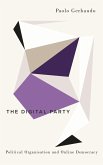In times of crisis of representation the question of what kind of democracy can be achieved through the expansion of new technologies emerges with renewed vigor. Is it direct democracy or yet another appendage of representative democracy? Is it democracy as understood by classical liberals, libertarians or communitarians? Is it deliberative or participatory electronic democracy? In the first book of the Digital Democracy series, Professor Wilson Gomes draws on ten years of research on the subject to present a historical cross section of the idea of electronic and digital democracy, addressing themes such as transparency, public sphere, participation and political deliberation. PhD in Philosophy and coordinator of the Center for Advanced Studies in Digital Democracy of the Federal University of Bahia (Ufba), Gomes divides his book into three periods: "1970-1995 - The origins of the idea of electronic democracy - Teledemocracy"; "1996-2005 - The consolidation of the idea of digital democracy"; and "2006-2015 - The state of digital democracy". As Gomes summarizes: "The history of the idea that it was possible to improve democratic processes through information technology can naturally go a long way back, as the invention and, above all, the massification of new communication media have always been accompanied by renewed hopes for improvement in democracy and public life." Published exclusively in digital format, the Digital Democracy series is edited by the professor and sociologist Sergio Amadeu da Silveira.
Dieser Download kann aus rechtlichen Gründen nur mit Rechnungsadresse in A, B, BG, CY, CZ, D, DK, EW, E, FIN, F, GR, H, IRL, I, LT, L, LR, M, NL, PL, P, R, S, SLO, SK ausgeliefert werden.









